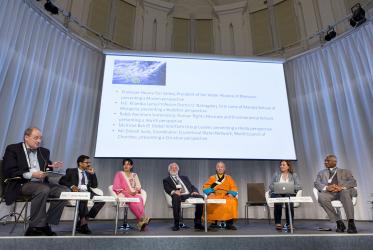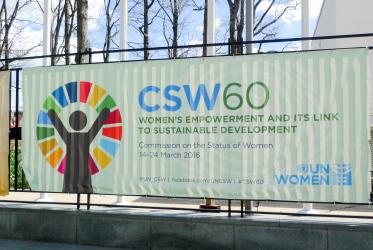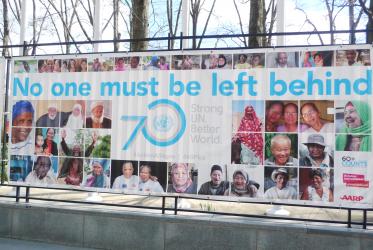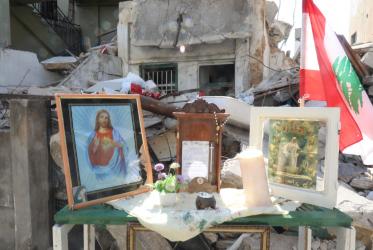Displaying 41 - 60 of 74
Religion: Way of war or path to peace?
30 June 2016
International affairs facilitator reflects on pilgrimage
31 March 2016
Religious leaders as agents of peace in the Americas
02 March 2016
Symposium focuses on religion, violence, extremism
04 February 2016
WCC/UN conference calls for coordinated action on refugee crisis
20 January 2016
WCC urges responsibility for and support to the refugees in Europe
04 September 2015
Killer Robots? Moral questions pervade UN conference
23 April 2015














